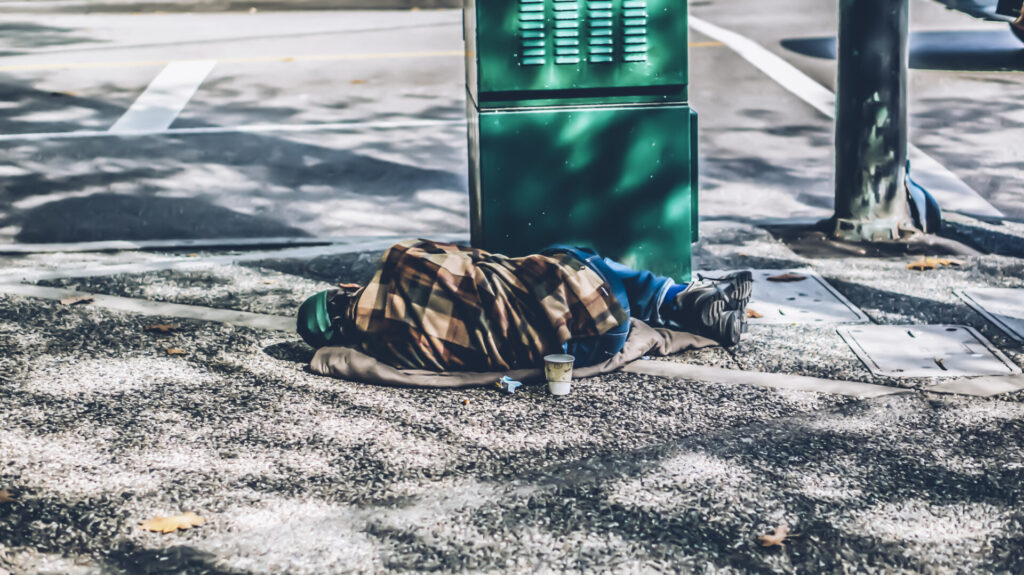Faith Housing Australia is not a housing provider or a direct support service.
If you are seeking emergency accommodation, visit Link2Home.
Faith Housing Australia is not a housing provider or direct support service. Click here to find crisis services nationwide.
The Calli Apartments in Liverpool, built by member Anglicare Sydney.

The significance of a safe, healthy, secure and affordable place to live underpins human dignity, physical and mental health, overall quality of life. It also helps the development of strong communities.
With the adoption of the Universal Declaration of Human Rights in 1948, the right to adequate housing joined the body of international, universally applicable, and universally accepted human rights law.
“Accordingly, access to a safe, healthy, secure and affordable home is a basic human right. Declining affordability is driving homelessness.”
This cause is at the heart of the housing advocacy work of Faith Housing Australia and its members as we work to transform the wellbeing and future of individuals, families and communities.
Housing is also fundamental to economic prosperity.
We believe it is critical that social policy settings ease inequality and disadvantage. The starting point to this is the provision of social and affordable housing in all its forms. This includes but is not limited to, housing for natural disaster responses, domestic violence, emergency, transition, specialist disability and care of the ageing.
Affordable housing supports the much broader suite of economic and wellbeing drivers that are needed in the fight against poverty and homelessness.
“…[housing is] the sturdiest of footholds for economic mobility. A national affordable housing program would be an anti-poverty effort, human capital investment, community improvement plan, and public health initiative all rolled into one.”
– Matthew Desmond, Professor of Sociology, Princeton University.
Despite the significance of housing as a stabilising factor in people’s lives, affordable housing remains inaccessible to many and is an escalating need across Australia.
The faith sector plays a key role in providing the supply and services for housing and homelessness. Out of this experience and expertise, our housing advocacy work takes place, speaking into all levels of government.
The work and experience of our members offers important insight into the provision of adequate supply and services that can correct the current housing crisis. Through the shared wisdom of our members, we are able to propose appropriate policy and funding settings required for transformative change into the future.
Member experience and understanding, indisputable accomplishments and innovations in the provision of housing supply and community care, inform our contributions to advocacy work.
Jess Storey, tenant at the Catholic Diocese of Maitland-Newcastle Mayfield complex. Read Jess’s story here.
The faith sector plays a key role in providing the supply and services for housing and homelessness. Out of this experience and expertise, our housing advocacy work takes place, speaking into all levels of government.
The work and experience of our members offers important insight into the provision of adequate supply and services that can correct the current housing crisis. Through the shared wisdom of our members, we are able to propose appropriate policy and funding settings required for transformative change into the future.
Member experience and understanding, indisputable accomplishments and innovations in the provision of housing supply and community care, inform our contributions to advocacy work.
Jess Storey, tenant at the Catholic Diocese of Maitland-Newcastle Mayfield complex. Read her story here.
This advocacy work considers how we can grow more secure and affordable housing by understanding the issues related to fair and equitable rental housing tenures. Housing advocacy seeks to improve housing stability and address issues of eviction and access.
We keep a watching brief on levels of housing affordability in the community.
This advocacy work considers housing needs across diverse demographics, particularly in relation to groups emerging as most critically requiring attention for supply.
For example, we advocate for needs relating to youth, over 55s, domestic violence, disability accommodation, refugees, aboriginal and Torres Strait Islanders, and issues in regional and remoted communities.
This advocacy work considers how we can transform funding models to increase supply. It also considers planning and taxation reforms to expedite and fund supply.

Faith Housing Australia adopts the following mechanisms to inform and execute its advocacy work informed by evidence, our faith sector and member insights and practice, and research. This includes:
Submissions to government inquiries, investigations and reports.
Round tables and sector discourse.
Pre-budget submissions and post-budget analysis.
Faith sector research partnerships and social sector research partnerships.
Public education, commentary and debate.
“In the five years from this July, we aim to build 1.2 million [homes]. Our goal is ambitious but achievable, if we all work together …
Follow us on social media to keep up to date with key research and advocacy from the faith housing sector.
Faith Housing Australia is not a housing provider or a direct support service.
If you are seeking emergency accommodation, visit Link2Home.